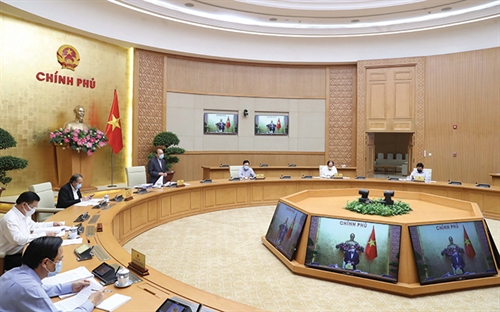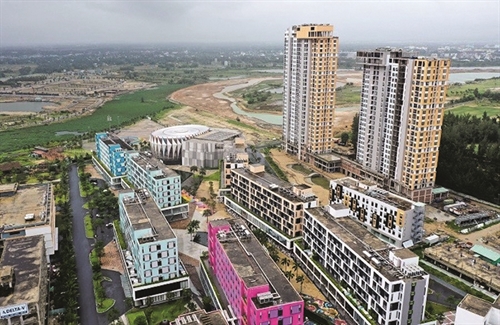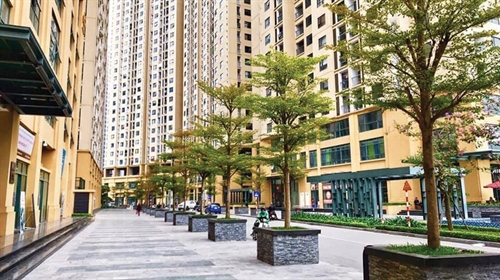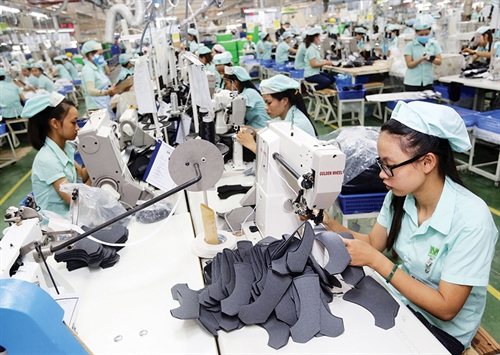Local media last month simultaneously reported that an incumbent National Assembly (NA) deputy is named in the so-called “The Cyprus Papers”, a batch of leaked documents containing information on persons having acquired Cypriot citizenship by making investment in the Mediterranean island country.
That NA deputy is Pham Phu Quoc, General Director of the state-owned Tan Thuan Industrial Promotion Company (IPC) and an NA delegate from Ho Chi Minh City.
In an interview with Tuoi Tre (Youth) newspaper, Quoc admitted that he has acquired the Cypriot nationality from mid-2018 but denied he “bought” the status. “I can attest that my Cypriot passport was obtained through my family’s sponsorship,” he said.
Quoc later sent a letter to the Ho Chi Minh City administration, resigning from the position of a NA deputy as well as the General Director of IPC.
It is worthy to note that the Ho Chi Minh City delegate was not the first NA deputy to be detected as acquiring a foreign citizenship while in office. In 2016, Nguyen Thi Nguyet Huong, a businesswoman from the capital city of Hanoi, was ousted from the NA after she was accused of concurrently holding Maltese passport.
The cases of Quoc and Huong give rise to a question whether civil servants and public employees in general and holders of elected posts in particular are banned from holding dual citizenship.
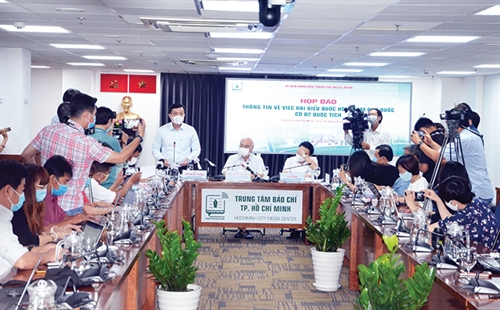 |
| A press conference held by Ho Chi Minh City People’s Committee on September 1 to provide information about the case of NA deputy Pham Phu Quoc__Photo: Xuan Khu/VNA |
The principle of single citizenship
First of all, it is necessary to affirm that Vietnam always adheres to the principle of single citizenship. Article 3 of the 1988 Law on Vietnamese Citizenship (the 1988 Law), the country’s first law on citizenship, stipulates: “The State of the Socialist Republic of Vietnam only recognizes that Vietnamese citizens have a single citizenship, the Vietnamese citizenship.” In other words, Vietnamese citizens may only hold the citizenship of Vietnam and those who want to acquire the citizenship of another country must renounce Vietnamese citizenship.
In 2008, the NA adopted a new Law on Vietnamese Citizenship to replace the 1988 Law. The 2008 Law (amended in 2014) perpetuates the principle of single citizenship laid down in the 1988 Law and at the same time carves out some exceptional cases where dual nationality is permitted.
Explaining the reason behind such move, Dr. Nguyen Dinh Quyen, former Vice Chairman of the NA’s Committee on Judicial Affairs and Head of the Institute of Legislative Studies, who was directly engaged in the formulation of the 2008 Law, revealed that the amendment was made in light of the Party Central Committee’s Political Bureau’s Resolution 36 of 2004 on overseas Vietnamese.
“This aims to call for overseas Vietnamese who have acquired the citizenship of other countries to return and make contributions to the home country,” Quyen expounded to local media.
To make it clear, the 2008 Law specifies cases in which dual citizenship may be accepted. Accordingly, when applying for naturalization in Vietnam or restoration of Vietnamese citizenship, persons who are spouses, biological parents or biological children of Vietnamese citizens; have made special contributions to the construction and defense of the Fatherland; or have brought about benefits to the Vietnamese State may be permitted by the President to retain their foreign passports.
However, the 2008 Law has no provisions on Vietnamese citizens who are naturalized in a country that permits dual nationality. In fact, not a few Vietnamese citizens concurrently possess two passports, for example, children of inter-country families between Vietnamese and foreign nationals; persons who acquire foreign citizenship by marriage; talented scientists and artists who are residing abroad and granted citizenship by their countries of domicile; and those who get the second passport by making investment in host countries.
Criteria on citizenship of NA deputies
It is commonly acknowledged that everything which is not forbidden is allowed. So, in case Vietnam’s law has not yet provided for criteria on citizenship of NA deputies, may incumbent parliamentarians apply for the second passport besides the Vietnamese one?
Under the 2015 Law on Election of Deputies to the National Assembly and Deputies to People’s Councils, to become NA deputies, candidates must be Vietnamese citizens, be aged full 21 years or older and have the right to stand for election; be included in the list of candidates formulated by the Vietnam Fatherland Front after rounds of consultation; win the necessary quantity of votes; and be certified as qualified to be NA deputies.
Meanwhile, the current Law on Organization of the National Assembly, adopted in 2014, lays out several criteria on NA deputies, for instance, being loyal to the Fatherland, the People and the Constitution, having strong ties with the People and succeeding in gaining the trust of the People. However, none of these criteria mentions nationality of NA deputies.
Hence, according to current regulations, NA deputies’ acquisition of a second passport is not considered a violation of law, Luu Duc Quang, a lecturer from the Law Faculty of the University of Economics and Law under the Vietnam National University, Ho Chi Minh City, gave his analysis on Tuoi Tre (Youth) newspaper. “However, this is unacceptable and must be rectified,” Quang said, adding that if a NA deputy is concurrently a citizen of another country, he no longer meets the criterion of being loyal to and committing to fight for the interests of Vietnamese people.
Dr. Nguyen Dinh Quyen seemed to disagree with Quang. “According to the rule of law, citizens are allowed to do what the law does not forbid, but civil servants, public employees and state officers may only do what is permitted by law. There are no regulations permitting NA deputies to acquire a second citizenship,” Quyen said.
“There is nothing to argue about the case of Quoc. He had broken principles of a law-ruled state,” Quyen concluded.
Nguyen Cong Khanh, Director of the Ministry of Justice’s Department of Civil Status, Citizenship and Notarization, shared the same views with Dr. Quyen.
“Citizenship constitutes a political-legal issue and no country is willing to get into trouble when granting citizenship to foreign officials and politicians, Khanh talked to Phap luat Thanh pho Ho Chi Minh (Ho Chi Minh City Law) newspaper. “But every law has its loopholes and that’s why the situation of corrupt offenders fleeing abroad still exists,” he added.
“They probably have problems in political perception. They don’t comprehensively understand the political-legal nature of citizenship but only look at the legal aspect, the possibility of obtaining a second nationality without having to give up Vietnamese citizenship and then strive to do it for a particular purpose,” Khanh commented when asked about civil servants acquiring foreign passports while in office.
“Vietnam’s current laws on organizational apparatus and election all provide that the first and foremost condition for a person to participate in the state apparatus is being a Vietnamese citizen, holding Vietnamese citizenship. It can be understood in consistency with the principle of single citizenship that once you have become part of the state organization, you may not hold another nationality,” Khanh said.
“From the legal viewpoint, cases like Quoc’s and Huong’s prompt the need for further improvement of the system of legal documents and regulations,” Khanh said.
“However, pending the revision of the legal system, current regulations must be unanimously interpreted following the principle of single citizenship,” he stressed.
It seems that lawmakers have taken this situation into account when passing amendments to the 2014 Law on Organization of the National Assembly last June. According to the amendments, scheduled to come into force on January 1 next year, NA deputies may have only a single citizenship, the Vietnamese citizenship.-



